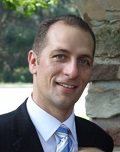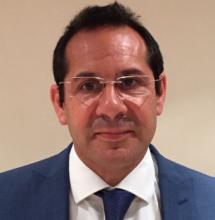09
Jan
2019
18:00
GMT
Webinar
Non-Invasive 3D Mapping: Principle, Clinical Applications and Outlook
-
Views:
 5074
5074
-
Likes:
 1
1
Overview
Experts in non-invasive 3D Mapping will showcase the science and evidence behind this new mapping modality and highlight the unique features that non-invasive, pre-procedural mapping offers. Practical cases will add to the understanding of the workflow and the information that this mapping tool can offer. The presenters will draw on their clinical experience for an in-depth discussion on current clinical challenges and how non-invasive Mapping might help in complex arrhythmia patients. Finally, the faculty will discuss their opinion on potential future applications and where this novel mapping technology might be placed in the future.
Watch previous Radcliffe Cardiology webinars supported by Medtronic:
Faculty:

Phillip Cuculich

Pier D Lambiase

David Calvo Cuervo
This webinar is supported by

Key Learning Objectives
- Principle of non-invasive 3D Mapping
- Workflow of non-invasive 3D Mapping procedures
- Clinical applications of non-invasive 3D Mapping
- Potential future applications of non-invasive 3D Mapping
Target Audience
- Cardiac electrophysiologists and allied health professionals performing and assisting during complex arrhythmia ablation procedures
- Healthcare professionals using alternative AF/VT mapping techniques and referring healthcare professionals treating AF/VT patients will also find this topical
Faculty Biographies

Phillip Cuculich
Dr Phillip Cuculich graduated from Vanderbilt University School of Medicine, Nashville, USA in 2001 and has since trained at Northwestern University, Chicago and the Barnes-Jewish Hospital, Washington University, St Louis, USA where he is currently an Associate Professor of Medicine in the Cardiovascular Division. His clinical interests include arrhythmias, sudden cardiac death, atrial fibrillation, ventricular tachycardia and inherited disorders of the heart. He is currently completing research on a new non-invasive electrocardiographic imaging system (ECGI) to create 3D maps of arrhythmias with a focus on VT and AF; on risks and benefits of implantable defibrillators (ICDs); and cardiogenetic syndromes such as long QT syndrome, arrhythmogenic right ventricular cardiomyopathy, hypertrophic cardiomyopathy and dilated cardiomyopathies with conduction system disease.

Pier D Lambiase
Prof Pier Lambiase is a consultant cardiologist specialising in the treatment of heart rhythm disorders and pacemaker implantation. He graduated from Oxford University in 1992 and trained in cardiology at St Thomas’ and Hammersmith Hospitals. Following completion of a PhD in 2002, he undertook higher specialist training in electrophysiology and became a consultant cardiologist and senior lecturer at the Heart Hospital, UCL in 2006 and was promoted to reader in cardiology in 2012.
He was the British Cardiac Society Young Investigator in 2002 and finalist in the North American Pacing & Electrophysiology Society Young Investigator competition in the same year. He was awarded the British Cardiovascular Society Early Career Award for his research in 2015 and elected Fellow of the Heart Rhythm Society the same year.
Prof Lambiase conducts research into the causes and treatment of inherited rhythm disturbances, sudden arrhythmic death syndrome and family screening. He has the co-written Heart Rhythm UK Guidelines on genetic testing and the management of these conditions and published more than 100 peer-reviewed papers and book chapters in cardiology. He is an editor of the Oxford Handbook of Inherited Cardiovascular Disease and the panel lead for the Royal College of Physicians Map of Medicine pathways in arrhythmia management. He is the British Heart Rhythm Society Chair for Research.

David Calvo Cuervo
Dr David Calvo Cuervo is a Consultant in Cardiology, Invasive and Clinical Cardiac Electrophysiology at the University Central Hospital of Asturias, Spain. He has trained at the Central University Hospital of Asturias, Universidad Complutense Madrid, and Central University Hospital Gregorio Marañón in Spain. In 2007 he completed a Research Fellowship in Experimental Cardiac Electrophysiology at the Centre for Arrhythmia Research at Upstate Medical University in Syracuse, New York, USA. He has published multiple papers on Mapping Fibrillation and Drivers. Dr Calvo has received several awards for publications and research projects including from the Cardiac Electrophysiology Society (USA) and Spanish Society of Cardiology.





